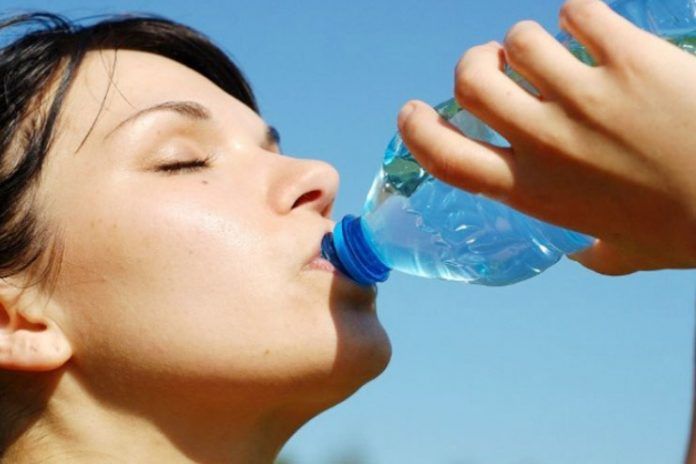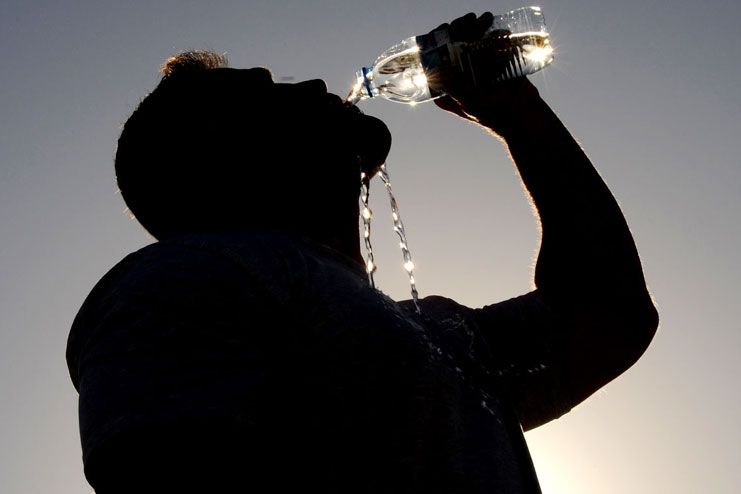Affiliate Disclaimer
Some links in this article are affiliate links. We may earn a small commission if you make a purchase through these links, at no extra cost to you. We only recommend products we find useful to our readersIt is a well-known fact that more than half of your body is made up of water and drinking enough water is extremely important for the body to save it from diseases such as dehydration. Additionally, it is also important that you refill your body with water time-to-time as the body loses its water through sweating, breathing as well as digesting. However, as all things come with good as well as bad effects, water has its disadvantages too. There are various side effects of drinking water excessively.
It is important that you know how much amount of water you need to keep your body hydrated. Although there is no exact amount of water which you should follow while drinking it, experts say that around 2 liters of water are essential for the body every day. Drinking more than that can cause various problems in the body. While you would be familiar with the effects of dehydration on your body, disadvantages of drinking water are not commonly known.
To counter this, we have made a list of important side effects of drinking excess water, which you should consider to keep yourself healthy and fit.
Also Read: Usage And Benefits Of Olive Leaves
Side effects of excess water consumption
1. Cell swelling
Experts say that the main function of sodium, as well as potassium in the body, is to maintain the balance of fluid in the cells as well as your body by acting as an electrolyte. The concentration of these electrolytes gets decreased in a dramatic way when there is a large amount of water present in the body. This can result into the flowing of excess water in the cells and causes abnormal swelling in the cell. Swelling of cells is considered as highly dangerous for the whole development of the body.
2. Loss of potassium
As mentioned earlier, potassium is important in the body to keep the fluid balance in check. Drinking too much water will cause your body to lose the excess liquid through sweat as well as urine. This can affect negatively on potassium levels in the body and can cause loss of it. Loss of potassium in the body is commonly known as hypokalemia. The symptoms of hypokalemia include vomiting, paralysis, diarrhea, nausea as well as low blood pressure.
3. Strain on heart
Experts say that your body follows a certain process of absorption. Around 80 percent liquid in your body gets absorbed by the small intestines with the help of the process, known as osmosis. This absorbed liquid then enter the bloodstream and increases the volume of blood and puts a strain on your heart. Drinking excess water may cause additional strain on your heart as well as on blood vessels. This condition is considered fatal as it can cause seizures in some cases.
4. Headaches
Drinking excess water can also cause headaches, according to the experts as it can negatively impact on your brain. Excessive drinking water leads to decrease in the percentage of electrolyte in the body. This result into entering of more water in your cells including the cells in your brain area. If you are suffering from a headache after drinking too much water it is due to expanding of cells in the brain. It is important to get the medical advice as early as possible to get yourself away from this health emergency.
5. Frequent urination
Although many researchers say that it is actually a great health benefit, frequent urination sometimes can prove highly problematic. Your body is not build to hold up excess water in it. It loses that water through urination as well as through sweating. Drinking too much water will cause frequent urination and it gets highly embarrassed many a times.
6. Muscle cramps
Dropping of electrolyte level in the body due to excessive drinking of water can also lead to causing various muscular problems. This occurs mainly due to a fluid imbalance in the body. It may cause various muscle spasms as well as severe cramping. Therefore it is important to refill yourself with enough electrolytes along with water if you engage yourself in high endurance workout to save yourself from muscular cramping.
7. Increased cancer risk
In various countries, chlorine is used in tap water to disinfect it. According to the experts, excessive drinking of chlorinated water for the longer period of time increases the risk of the bladder as well as testicular cancer. The risk gets more elevated through beverages which are made by the chlorine-induced tap water, according to the experts.
8. Causes hyponatremia
Drinking excess water in short period of time will cause your body to work hard to flush out the excess water. Drinking too much water negatively impacts on the sodium level of the body which is required to maintain the balance of fluid in the body. Excess water may cause damage by entering to cells and by causing swelling to it. This situation is known as hyponatremia or more commonly known as water intoxication. Cell swelling due to excess water can cause damage to brain cells as well. This situation needs immediate medical help and treatment.
9. Affects the functioning of glomeruli
According to the experts, excessive drinking water can cause damage to the functioning of glomeruli, clusters of capillaries which are present around the kidney tubule. This glomeruli forms a first stage in filtering blood which is carried out by the nephrons in urine formation. Drinking excess of water can cause bloating in the area as your kidneys would need to give extra time to filter out all the excess water from the body.
10. Makes you tired
The main purpose of your kidneys is to flush out liquids from your body. Your kidneys may affect negatively if you drink too much water as it puts a lot of strain on your kidneys. Your kidneys will have to work really hard to flush out all the excess water out of your body. This can result in having a stress reaction in your hormones. Due to this, you might feel highly tired or fatigued.
Read Also: Amazing Benefits Of Almond Oil
By Prajakt K.















